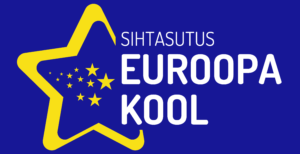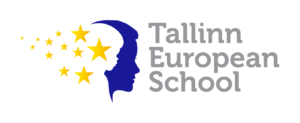TES: Good morning to both of you. Thank you for taking some time to reflect on career choices for TES students as well as to give our readers some advice on how to best prepare to get into the best universities in Europe and beyond. So why don`t you share with us briefly who you are.
Niklas: Good morning. My name is Niklas Tikka, I am a Finnish citizen and currently attend S7 at TES in Tallinn. I started my primary years at the European School in Munich (ESM) and have been at TES for the last 7 years. I am passionate about Electrical Engineering. In particular, I would like to develop more energy efficient hardware and at the same time accelerate processing power of semiconductor and circuit boards in order to bring computing power to the next level. I am also passionate about Sciences in general with a focus on Physics and Math. Besides, I have been active in the student council at TES.
Stefan: Good morning. I am a parent at TES and father of 4 boys of which two are currently attending TES. Besides running our family office, I use my free time to support senior secondary students across the world to help them making better choices when it comes to finding and applying to challenging university programs. This pro bono mentorship is a way for us to give back to the community.
TES: Great. So, Niklas, tell us a little bit about your journey in the European School System – starting with the primary years, transition into Secondary, and in particular the last 3 years at TES towards the preparation for the Baccalaureat.
Niklas: My journey started at the age of 4, when I joined the European School in Munich. After 9 years in Germany, I was given a choice to stay or move to Estonia. I decided to take the risk and try out Estonia, and I believe this was one of the best choices I have ever made. Now 14 years later I have finally reached the finishing line and am ready to graduate. Personally, one of the key aspects that motivated me in subjects such as math and physics, was my work experience. Being able to work in the engineering industry (internships), helped me to understand what I wanted my future to look like, and thus helped me prepare for the BAC.
TES: Why did you chose to attend TES in the first place?
Niklas: Definitely the connectivity and flexibility. The European school system has the beauty to allow students to switch schools/countries while still pursuing the European Curriculum. You do not have to start from scratch again and you are getting up to speed quickly.
Stefan: Mobility is key in today`s world. Being able to switch locations and get operational quickly is one of the core abilities that companies are looking for. The earlier you learn this, the better. Europe is a unique place. Students should take advantage of the ability to effectively work and live in 27-member states without any (major) administrative burden. Unfortunately, the idea of switching locations within our system does not (yet) resonate with many students (and teachers). But TES is working on this. Understanding different cultures can only work if we experience different cultures.
TES: In hindsight, what would you have done differently?
Niklas: I only realized in the beginning of S6 that I will graduate in 2 years but have to take many important decisions before graduation. Stefan gave me the wake-up call. I almost missed the exit.
Stefan: …well, you did great. However, it is true that most of the (my) students only realize (too) late that, starting in S5, some choices have to be made for the life after graduation. Parents should take a much more active role in guiding their children in the process of making good choices. From my experience, many parents (not just at TES) outsource education to the provider thinking that, eventually, their kids will be ok. The reality is that it takes (at least) “two to tango”, meaning there is a vital correlation between the support from parents, the school and of course the student to achieve the best outcome.
Today`s world is complex. Gaining access to the very top universities is not just a question of intelligence but also preparation, the right subject choices, coaching, persistence. In my (in-) famous will/skill matrix, the “will to succeed” of the student plays a very vital role. The application process to top schools takes about 18 months and is extremely competitive. Even if a student is highly gifted, if he/she does not have the will and motivation to go “all in”, it will be quite unlikely to gain admission.
TES: Share some examples with us what made the TES experience so unique for you?
Niklas: I must admit, I really enjoyed the small class sizes – TES felt like my second home. I originally came from a school with over 3.000 students and classes with 30+ students. Teachers barely knew your name, and you were basically just a number in a larger system. TES does things differently. Teachers go the extra mile. The majority of my classes have less than 10 students. This allows teachers to really help and connect with the students on a personal level. This not only makes TES unique, but also provides a better study environment and you learn more.
TES: When it comes to choosing the subject and university after TES, what have you discovered?
Niklas: I believe the key is to find the subjects you are most passionate about. Once you understand your passion, you should focus on these subjects – even beyond just normal class work. In my case, I love engineering. So naturally, all sciences matter with a spike in Math in Physics. I was very lucky. Both my math and physics teachers – Pierre Blime and Özgür Polat – are outstanding. Not only did they push me in these subjects to go beyond, they also motivated me to aim for a higher cause in my professional ambition. And I know that I have caused them a lot of pain. I am very grateful to them.
Stefan: Finding the right subject is key during the secondary cycle. I have had many cases where my students had to find out (too late) that their dream university did require certain classes (in order to be considered for admission) that students did not take. This is in particular true for all sciences. There is a certain trend among students to “avoid” sciences in secondary. Unfortunately, today`s world does not function without sciences. The school needs to make sure that students re-discover again a passion for sciences and that they understand the inter-connection with all sciences within a growing digital world.
TES: Who and how did TES help you specifically during the application process? What surprised you most? Any regrets?
Niklas: Stefan made a big difference. When we first met two years ago, I had no idea of the journey ahead. The last two years have been painful, brutally honest but enlightening. I have discovered who I am and what I want to be. I became very motivated to go the extra mile. From choosing the right university, study program to the application process, writing essays and preparing for tests and interviews, we have had quite a journey. More importantly, the process has helped me to understand what and who I want to be in life.
Stefan is not “nice”, he is “kind”. His “kindness” does not sugar-coat you. Yet, once you realize what matters, he coaches you to go the extra mile. And because he has been studying at top universities like Harvard, he knows what it takes. He quickly tells you how you perform, who you are and asks a lot of questions while pushing you. Some fellow students either dropped out or where asked to leave. Luckily, I survived.
And today, I can happily say that I have been admitted to several top universities. And I will be choosing Imperial College in London, UK, and study Electrical Engineering as an undergraduate starting September 2024. (TES: The Engineering School at Imperial College is rated one of the top 5 Engineering Schools in Europe)
TES: Can you share with our current secondary students your learnings when it comes to TES course selection, overall work attitude and the overall application process? How important are extracurricular activities besides School work?
Niklas: I must emphasize one subject – long math. In S4 you are given the choice between math 4 Periods and 6 Periods. At first, this seems like no big difference. Luckily, I chose 6p – and it made all the difference (thank you, Pierre Blime).
In addition, extracurricular activities are some of the most important aspects of your application. Top universities have acceptance rates of below 5% and many academically top students apply. Extracurricular activities can make the difference. Whether this is joining a club, participating in competitions or work experience – it helps you to stand out. I wish I would have discovered this earlier. Luckily, I did, however, do several internships and was active within the TES school community.
TES: Can you give us some advice how TES can improve in the future?
Niklas: If possible, I would like to see TES participate in more competitions, for example math/science Olympics, or other extracurricular activities. A dedicated, interconnected Sciences section would be great. In lower secondary, TES teaches “Integrated Sciences” – that is a great subject. They should continue to offer this course in higher Secondary, too.
TES: We celebrated TES`s 10th anniversary last Friday. What are your expectations when you return in 10 years from now?
Niklas: Despite the strong growth over the last years to now more than 500 students, I hope that TES will stay to be a family, meaning that class sized remain small and teachers know you beyond just your grades. I also hope that TES will build stronger exchange networks with other European Schools and become a leader in all science-related subjects within the European School System.
TES: Thank you, Niklas and Stefan, for your time and good luck for the future.



